Halloween is one of my favorite times of the year. It’s one of the most fun family events in the buildup to Thanksgiving and Christmas.
And it’s one of those events that you can take to the next level without having a huge impact on the environment.
One thing that I have worked on with my family is a to-do list for our own Halloween costume swap party.
It’s one of the best ways to not end up throwing out old Halloween costumes while at the same time not wearing the same one every single year.
Let me show you what’s involved.
1. Plan Ahead: Visualize Your Halloween Costume Swap Party
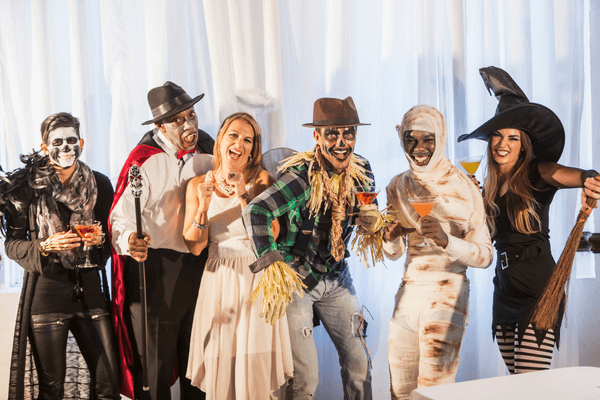
Before you start contacting your friends, take the time to visualize what you want to achieve. Yes, it’s supposed to be an eco-friendly event, but you need to start with a more high-level approach.
First of all, decide whether this will be an event for kids, adults, or both.
Are you just going to invite families?
And is this going to be an open-invitation event for your community to get into the spirit of costume swaps? Or do you want to keep it to a selective list of invitees?
This will heavily influence the time, date, and venue, and you don’t want to start planning those before you have a clear idea of what kind of party you want to have.
2. Pick a Date for Your Party
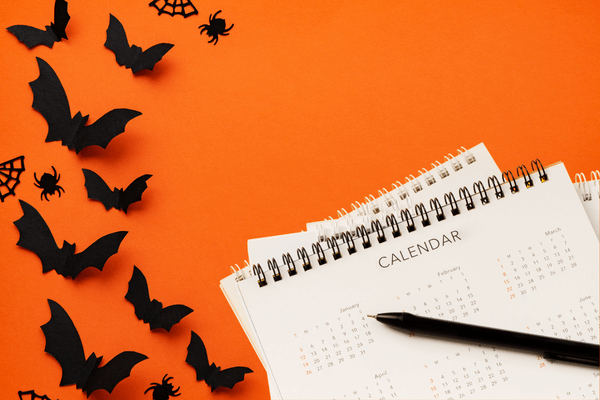
Now, you might think that Halloween night is the best date to pick.
But remember, most people will be busy bringing their kids trick or treating.
Plus, people need their costumes ahead of Halloween, right?
A great option is to pick the second Saturday in October, which is National Costume Swap Day. It’s a great way to get people more aware of the idea of costume swapping.
You don’t have to stick with National Costume Swap Day, but keep in mind the practicalities of the day you pick.
If you want to give people more flexibility, try to pick a Friday or Saturday evening. You’ll also need to consider the venue before you pick a date, as it might not be available.
3. Choose a Proper Venue
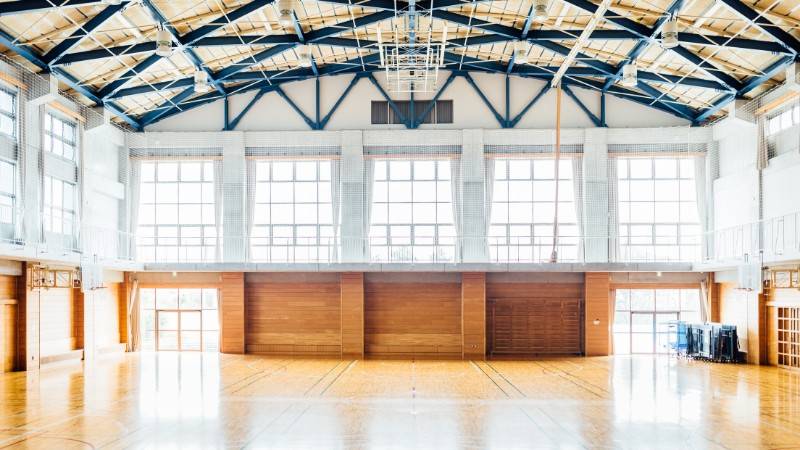
Now that you have decided on who you’re going to invite to your costume swap, you should also have an idea of whether you can host the event at your home or whether you’ll need to hire a venue.
Some options for venues are function rooms in hotels, community halls, and even your local library.
The first thing you should do is contact all possible venues and ask about availability and prices. Local town and municipality venues are often cheap and sometimes free if you’re planning a community event.
But you need to keep the event sustainable and try not to damage anything.
Some of these places might also be happy to help out with advertising the event, especially if you plan to make it open to everyone in the community.
4. Establish Some Ground Rules For Halloween Costumes
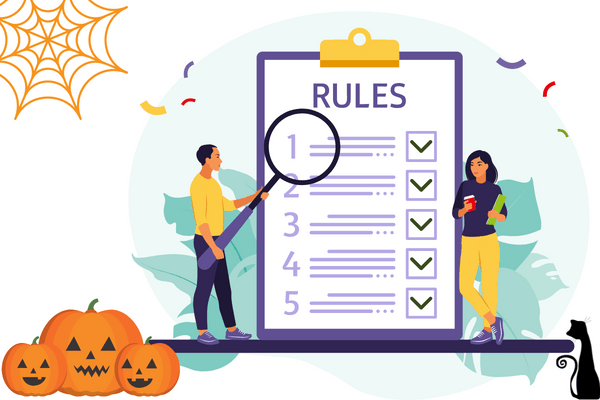
Here are a couple of ideas for some ground rules.
First of all, everyone should bring a costume they no longer need or want. You can bring more if you have spare ones, but it should only be fair to swap costumes on a one-for-one basis so that everyone has a chance of taking part.
If this is going to be a family event, then also consider asking people not to bring extremely scary and realistic Halloween costumes.
Set up some clothing racks at the venue where people can bring their old costumes and ask people to try and keep them organized by size.
5. Get Your Friends To Swap Costumes
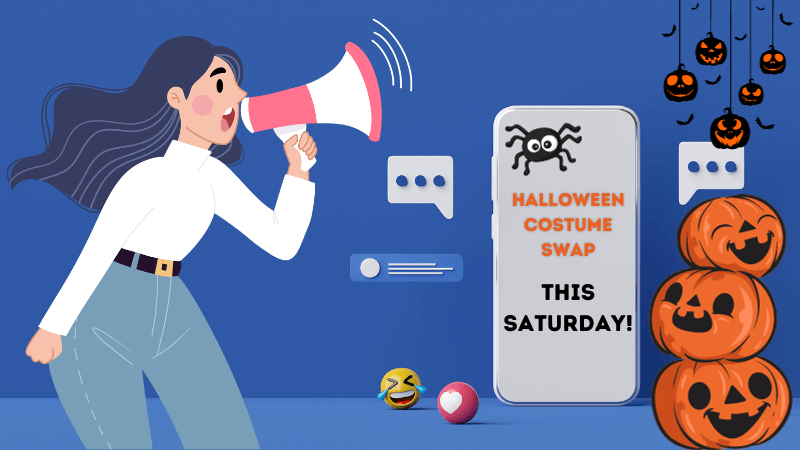
The best way to promote your Halloween costume swap is to send text messages and emails and add some posts on social media.
You want to avoid sending out paper invitations or creating printed flyers and posters. Remember, this should be an eco-friendly event.
Make sure you get your digital invitations sent out well in advance of your chosen date.
If you’re going with National Costume Swap Day, then send out the invites in the middle of September to give everyone enough time to get organized.
6. Decorate the Venue: Set The Halloween Vibe
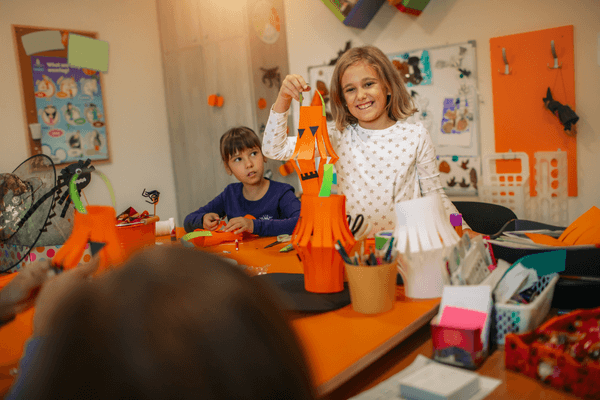
This is where you should do some planning for your costume swap and ask friends and people in your community to help out.
First of all, plan to create Halloween decorations out of recycled materials.
Stuff that would end up in the trash will often make a great decoration with a bit of paint and imagination.
Also, only use materials that you can later put in the recycling bin rather than the landfill. It doesn’t take a huge amount of planning to avoid stuff that might harm the environment.
Another thing I have done is keep old costumes that might be damaged beyond repair. This can happen if you have multiple kids and you pass things down to friends and family as well.
7. Have Some Starter Costumes
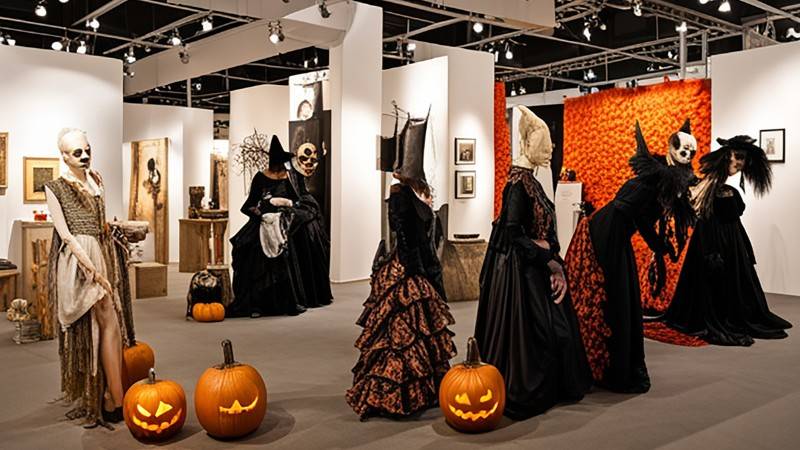
If you’re the host of the costume swap party, then make sure you have a few items available so that your first guests arriving have something to exchange.
Try displaying some of the intriguing Halloween costumes from the get go.
You can do this with leftover costumes from another party or simply add those that you might still have at home that you no longer need.
Another option is to check with local thrift stores for old costumes that you should be able to get very cheap.
Halloween costume swaps don’t have to be about having the most amazing costumes available, but just a way to make more use of costumes.
8. What About Food and Drinks?
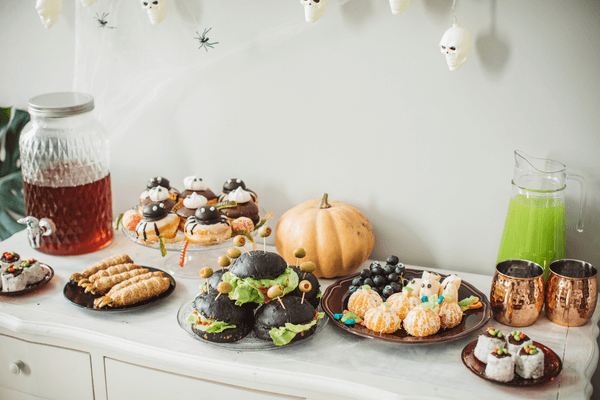
If you want to make a great impression with a community costume swap party, then why not organize for people to bring food and drinks?
You’ll be surprised how many people will be more than willing to contribute small things. Just set a few rules about the food.
Not so much who brings what and whether there are enough vegan, vegetarian, and gluten-free options.
This is supposed to be an eco-friendly party, and you want to make sure that people bring food in reusable containers.
Also, avoid any kind of plastic plates and cutlery.
Using paper and some wood items is OK, but ideally, supply reusable things.
Some community halls will also offer supplies for parties as long as you clean up after, which is a great way to ensure you reduce your eco-impact.
9. Should You Consider Additional Entertainment?
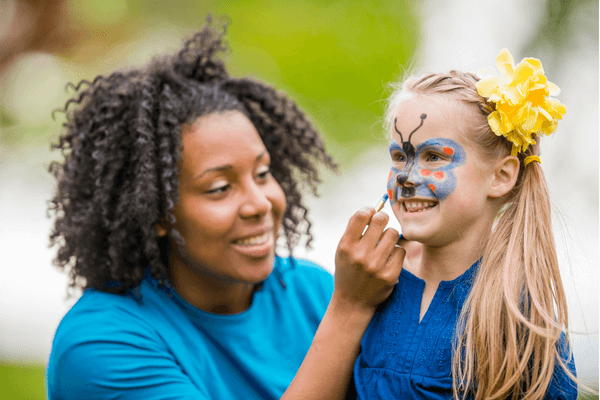
The final thing to consider is what kind of entertainment you need for your costume swap party.
One thing to consider is some music, and you can check with some local bands or just people on your invite list that might be able to DJ or play some music.
If it’s a party mainly for kids and families, then consider organizing some face painting, coloring competitions, and treasure hunts.
You can even have some crafting activities making use of recycled and upcycled materials.
Make this as fun as you can imagine, and you’ll quickly see that people will be calling for costume swapping every year.
Conclusion
Starting a trend of a Halloween costume swap party is a great way to spread the word about becoming more eco-friendly.
Unwanted costumes don’t belong in the trash.
Such parties are also a great way to get people to think more about how small changes can make big differences. And you’ll be setting an example of the reuse of perfectly good resources by offering them to others.
Small changes make a big difference. Reuse, don’t waste.
Make it an annual event. Involve your community and celebrate sustainability!

